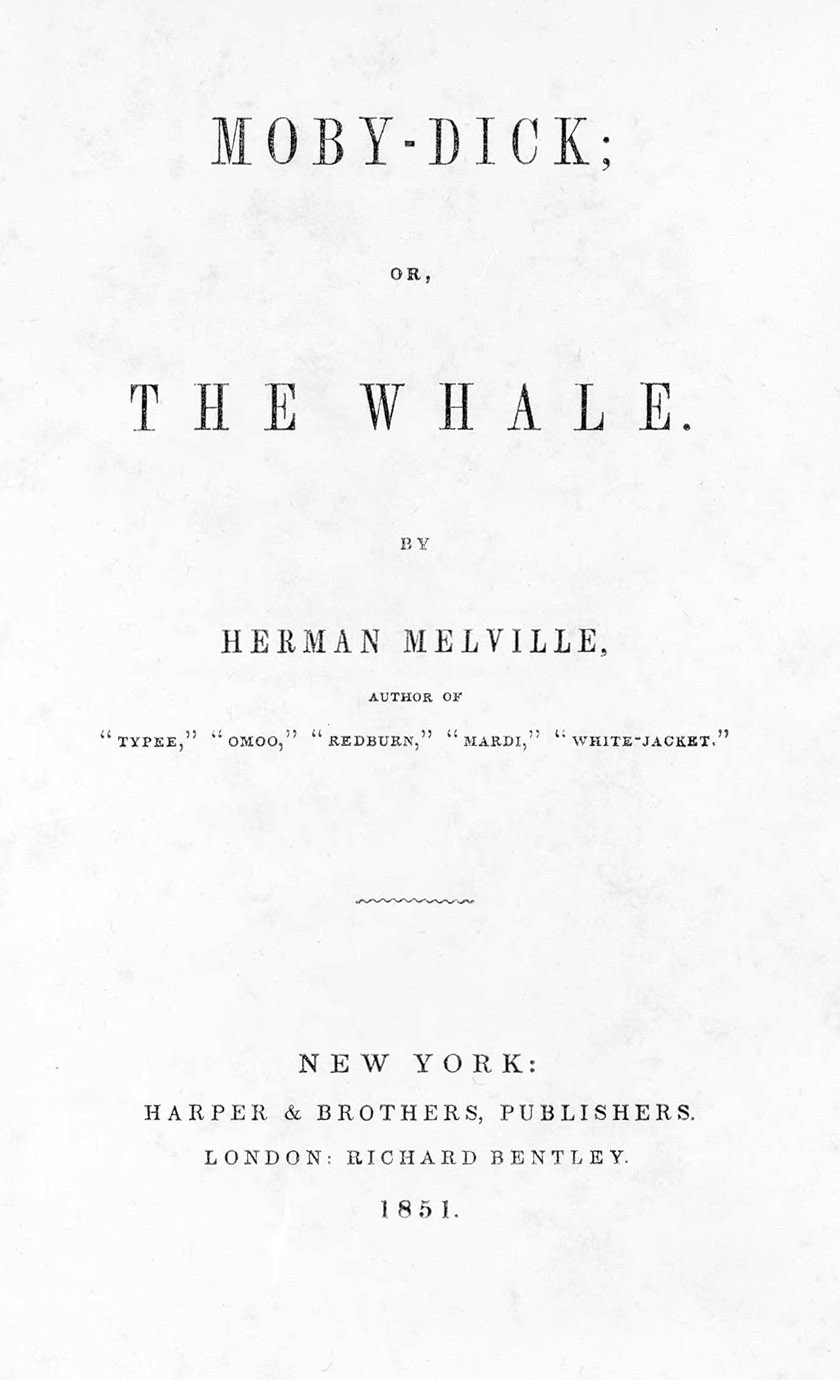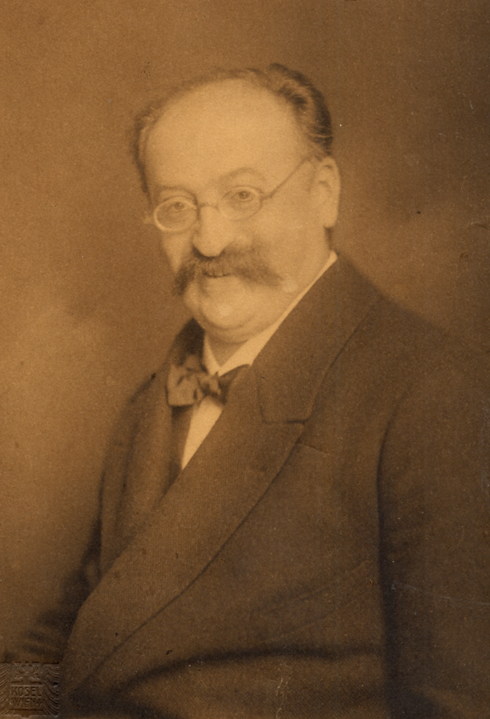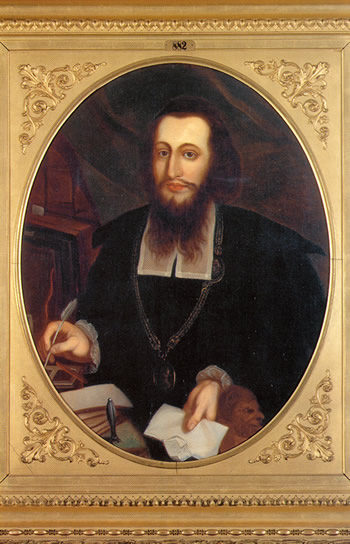|
Victor Zuckerkandl
Viktor Zuckerkandl (2 July 1896, Vienna – 5 April 1965, Locarno) was a Jewish-Austrian musicologist. His doctorate was granted in 1927 from Vienna University, having earlier studied under Richard Robert. He conducted freelance throughout the decade of the 1920s. He was a critic for Berlin newspapers from 1927 to 1933 and taught theory and appreciation courses in Vienna from 1934 to 1938. He emigrated to the US in 1940, teaching at Wellesley College until 1942, when he took a job as a machinist in the war effort. From 1946 to 1948 he taught theory at The New School in New York, and joined the faculty at St. John's College, Annapolis in 1948. He remained at St. John's, teaching music as part of their Great Books program, until his retirement in 1964. His explanations of music theory were heavily indebted to the theories of musicologist Heinrich Schenker, and his understandings of musical perception owed much to Gestalt psychology, as well as German phenomenology. Zuckerkandl b ... [...More Info...] [...Related Items...] OR: [Wikipedia] [Google] [Baidu] |
Vienna
en, Viennese , iso_code = AT-9 , registration_plate = W , postal_code_type = Postal code , postal_code = , timezone = CET , utc_offset = +1 , timezone_DST = CEST , utc_offset_DST = +2 , blank_name = Vehicle registration , blank_info = W , blank1_name = GDP , blank1_info = € 96.5 billion (2020) , blank2_name = GDP per capita , blank2_info = € 50,400 (2020) , blank_name_sec1 = HDI (2019) , blank_info_sec1 = 0.947 · 1st of 9 , blank3_name = Seats in the Federal Council , blank3_info = , blank_name_sec2 = GeoTLD , blank_info_sec2 = .wien , website = , footnotes = , image_blank_emblem = Wien logo.svg , blank_emblem_size = Vienna ( ; german: Wien ; ba ... [...More Info...] [...Related Items...] OR: [Wikipedia] [Google] [Baidu] |
Locarno
, neighboring_municipalities= Ascona, Avegno, Cadenazzo, Cugnasco, Gerra (Verzasca), Gambarogno, Gordola, Lavertezzo, Losone, Minusio, Muralto, Orselina, Tegna, Tenero-Contra , twintowns =* Gagra, Georgia * Karlovy Vary, Czech Republic * Lompoc, United States * Montecatini Terme, Italy * Urbino, Italy } Locarno (, ; Ticinese: ; formerly in german: Luggárus ) is a southern Swiss town and municipality in the district Locarno (of which it is the capital), located on the northern shore of Lake Maggiore at its northeastern tip in the canton of Ticino at the southern foot of the Swiss Alps. It has a population of about 16,000 (proper), and about 56,000 for the agglomeration of the same name including Ascona besides other municipalities. The town of Locarno is located on the northeastern part of the river Maggia (river), Maggia's delta; across the river lies the town of Ascona on the southwestern part of the delta. Locarno is the 74th largest city in Switzerland by p ... [...More Info...] [...Related Items...] OR: [Wikipedia] [Google] [Baidu] |
Richard Robert
Richard Robert (25 March 1861 1 February 1924 in Kaltenleutgeben) Retrieved 28 August 2013 was an Austrian pianist, composer, music critic, and music administrator, but he is most notable as a pedagogue in piano, composition and conducting. As a Viennese piano teacher, Richard Robert was discussed in the same breath as Emil von Sauer and Theodor Leschetizky. His notable students included Kurt Adler, Hans Gál, Clara Haskil, Rudolf Serkin and George Szell. Career He was born in Vienna in 1861 as Robert Spitzer.Lehmann & Faber, p. 20Karl Weigl FoundationRetrieved 28 August 2013 (He apparently returned to his birth name in 192 ... [...More Info...] [...Related Items...] OR: [Wikipedia] [Google] [Baidu] |
Wellesley College
Wellesley College is a private women's liberal arts college in Wellesley, Massachusetts, United States. Founded in 1870 by Henry and Pauline Durant as a female seminary, it is a member of the original Seven Sisters Colleges, an unofficial grouping of elite current and former women's colleges in the northeastern United States. Wellesley's endowment of $3.226 billion is the largest out of all women's colleges and the 49th largest among all colleges and universities in the United States in 2019. Wellesley is frequently considered to be one of the best liberal arts colleges in the United States. The college is currently ranked #5 on the National Liberal Arts College list produced by ''U.S. News & World Report''. Wellesley is home to 56 departmental and interdepartmental majors spanning the liberal arts, as well as over 150 student clubs and organizations. Wellesley athletes compete in the NCAA Division III New England Women's and Men's Athletic Conference. Its 500-acre (2 ... [...More Info...] [...Related Items...] OR: [Wikipedia] [Google] [Baidu] |
The New School
The New School is a private research university in New York City. It was founded in 1919 as The New School for Social Research with an original mission dedicated to academic freedom and intellectual inquiry and a home for progressive thinkers. Since then, the school has grown to house five divisions within the university. These include the Parsons School of Design, the Eugene Lang College of Liberal Arts, the College of Performing Arts (which itself consists of the Mannes School of Music, the School of Drama, and the School of Jazz and Contemporary Music), The New School for Social Research, and the Schools of Public Engagement. In addition, the university maintains the Parsons Paris campus and has also launched or housed a range of institutions, such as the international research institute World Policy Institute, the Philip Glass Institute, the Vera List Center for Art and Politics, the India China Institute, the Observatory on Latin America, and the Center for New York Cit ... [...More Info...] [...Related Items...] OR: [Wikipedia] [Google] [Baidu] |
Great Books
A classic is a book accepted as being exemplary or particularly noteworthy. What makes a book "classic" is a concern that has occurred to various authors ranging from Italo Calvino to Mark Twain and the related questions of "Why Read the Classics?" and "What Is a Classic?" have been essayed by authors from different genres and eras (including Calvino, T. S. Eliot, Charles Augustin Sainte-Beuve). The ability of a classic book to be reinterpreted, to seemingly be renewed in the interests of generations of readers succeeding its creation, is a theme that is seen in the writings of literary critics including Michael Dirda, Ezra Pound, and Sainte-Beuve. These books can be published as a collection (such as Great Books of the Western World, Modern Library, or Penguin Classics) or presented as a list, such as Harold Bloom's list of books that constitute the Western canon. Although the term is often associated with the Western canon, it can be applied to works of literature fro ... [...More Info...] [...Related Items...] OR: [Wikipedia] [Google] [Baidu] |
Music Theory
Music theory is the study of the practices and possibilities of music. ''The Oxford Companion to Music'' describes three interrelated uses of the term "music theory". The first is the "rudiments", that are needed to understand music notation (key signatures, time signatures, and rhythmic notation); the second is learning scholars' views on music from antiquity to the present; the third is a sub-topic of musicology that "seeks to define processes and general principles in music". The musicological approach to theory differs from music analysis "in that it takes as its starting-point not the individual work or performance but the fundamental materials from which it is built." Music theory is frequently concerned with describing how musicians and composers make music, including tuning systems and composition methods among other topics. Because of the ever-expanding conception of what constitutes music, a more inclusive definition could be the consideration of any sonic phenomena, ... [...More Info...] [...Related Items...] OR: [Wikipedia] [Google] [Baidu] |
Heinrich Schenker
Heinrich Schenker (19 June 1868 – 14 January 1935) was a Galician-born Austrian music theorist whose writings have had a profound influence on subsequent musical analysis. His approach, now termed Schenkerian analysis, was most fully explained in a three volume series entitled ''Neue musikalische Theorien und Phantasien'' (''New Musical Theories and Phantasies''), which included ''Harmony'' (1906), ''Counterpoint'' (1910; 1922) and ''Free Composition'' (1935). Born in Wiśniowczyk, Austrian Galicia, he studied law at University of Vienna and music at what is now the University of Music and Performing Arts Vienna where his teachers included Franz Krenn, Ernst Ludwig, Anton Bruckner and Johann Nepomuk Fuchs. Despite his law degree, he focused primarily on a musical career following graduation, finding minimal success as a composer, conductor and accompanist. From the 20th-century on, Schenker increasingly directed his efforts towards music theory, developing a systemic ap ... [...More Info...] [...Related Items...] OR: [Wikipedia] [Google] [Baidu] |
Gestalt Psychology
Gestalt-psychology, gestaltism, or configurationism is a school of psychology that emerged in the early twentieth century in Austria and Germany as a theory of perception that was a rejection of basic principles of Wilhelm Wundt's and Edward Titchener's elementalist and structuralist psychology.Mather, George (2006) Foundations of Perception, Psychology Pressch.1 p.32 As used in Gestalt psychology, the German word ''Gestalt'' ( , ; meaning "form") is interpreted as "pattern" or "configuration". Gestalt psychologists emphasize that organisms perceive entire patterns or configurations, not merely individual components. The view is sometimes summarized using the adage, "the whole is more than the sum of its parts." Gestalt psychology was founded on works by Max Wertheimer, Wolfgang Köhler, and Kurt Koffka. Origin and history Max Wertheimer (1880–1943), Kurt Koffka (1886–1941), and Wolfgang Köhler (1887-1967) founded Gestalt psychology in the early 20th century. The domi ... [...More Info...] [...Related Items...] OR: [Wikipedia] [Google] [Baidu] |
Phenomenology (philosophy)
Phenomenology (from Greek φαινόμενον, ''phainómenon'' "that which appears" and λόγος, ''lógos'' "study") is the philosophical study of the structures of experience and consciousness. As a philosophical movement it was founded in the early years of the 20th century by Edmund Husserl and was later expanded upon by a circle of his followers at the universities of Göttingen and Munich in Germany. It then spread to France, the United States, and elsewhere, often in contexts far removed from Husserl's early work. Phenomenology is not a unified movement; rather, the works of different authors share a 'family resemblance' but with many significant differences. Gabriella Farina states:A unique and final definition of phenomenology is dangerous and perhaps even paradoxical as it lacks a thematic focus. In fact, it is not a doctrine, nor a philosophical school, but rather a style of thought, a method, an open and ever-renewed experience having different results, and this m ... [...More Info...] [...Related Items...] OR: [Wikipedia] [Google] [Baidu] |
The New Grove Dictionary Of Music And Musicians
''The New Grove Dictionary of Music and Musicians'' is an encyclopedic dictionary of music and musicians. Along with the German-language ''Die Musik in Geschichte und Gegenwart'', it is one of the largest reference works on the history and theory of music. Earlier editions were published under the titles ''A Dictionary of Music and Musicians'', and ''Grove's Dictionary of Music and Musicians''; the work has gone through several editions since the 19th century and is widely used. In recent years it has been made available as an electronic resource called ''Grove Music Online'', which is now an important part of ''Oxford Music Online''. ''A Dictionary of Music and Musicians'' ''A Dictionary of Music and Musicians'' was first published in London by Macmillan and Co. in four volumes (1879, 1880, 1883, 1889) edited by George Grove with an Appendix edited by J. A. Fuller Maitland in the fourth volume. An Index edited by Mrs. E. Wodehouse was issued as a separate volume in 1890. In ... [...More Info...] [...Related Items...] OR: [Wikipedia] [Google] [Baidu] |
Austrian Jews
The history of the Jews in Austria probably begins with the Jewish diaspora, exodus of Jews from History of ancient Israel and Judah#Roman occupation, Judea under Roman occupation. Over the course of many centuries, the political status of the community rose and fell many times: during certain periods, the Jewish community prospered and enjoyed political equality, and during other periods it suffered pogroms, deportations to concentration camps and mass murder, and antisemitism. The Holocaust drastically reduced the Jewish community in Austria and only 8,140 Jews remained in Austria according to the 2001 census, though other estimates place the current figure at 9,000, 15,000, or 20,000 people, if accounting for those of mixed descent. Antiquity Jews have been in Austria since at least the 3rd century CE. In 2008 a team of archeologists discovered a third-century CE amulet in the form of a gold scroll with the words of the Jewish prayer Shema Yisrael (Hear, O Israel! The Lord ... [...More Info...] [...Related Items...] OR: [Wikipedia] [Google] [Baidu] |







